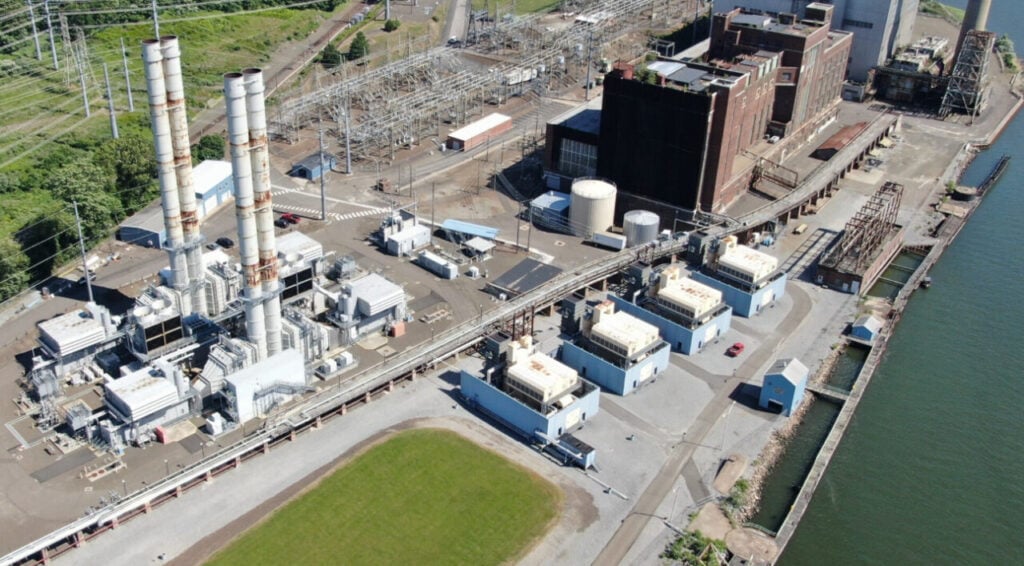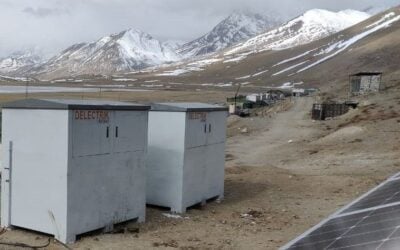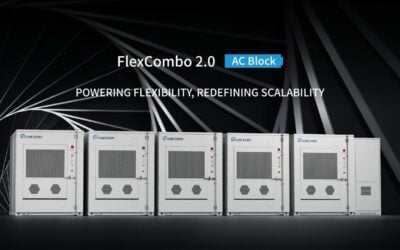
Developer and IPP Elevate Renewables will deploy a grid-forming BESS at a fossil fuel peaker plant in Connecticut, US, with US$27.5 million from the Department of Energy (DOE).
Elevate’s Innovative Inertia Project will reconfigure the 244MW natural gas Devon Generating Station peaker unit with a battery energy storage system (BESS) capable of providing inertia, synchronous condensing (‘green sync’) and other essential grid services, the firm said.
Those services will help remedy immediate imbalances in supply and demand on the grid, services which have historically been provided by fossil fuel assets. As fossil fuel assets with rotating turbines come offline, the inertia they provide to keep grid frequency levels stable needs to be replaced, and BESS technology combined with advanced inverters can mimic this via synthetic inertia.
Innovate Interia Project will provide 23MVA (mega volt-amperes) of reactive power for grid stabilisation and up to 20MW/80MWh of energy storage capacity with the capability of black-start grid restoration operations.
Try Premium for just $1
- Full premium access for the first month at only $1
- Converts to an annual rate after 30 days unless cancelled
- Cancel anytime during the trial period
Premium Benefits
- Expert industry analysis and interviews
- Digital access to PV Tech Power journal
- Exclusive event discounts
Or get the full Premium subscription right away
Or continue reading this article for free
Elevate, a portfolio company of investor Arclight, said the BESS will demonstrate the scalability and replicability of those advanced grid services.
The DOE is providing the funding under its Grid Resilience and Innovation Partnerships (GRIP) Program, which the administration last week announced is paying US$2 billion to 38 projects that will increase the resiliency, efficiency and capacity of the US grid. It is being administered by the DOE’s Grid Deployment Office (GDO).
Elevate is partnering with the Connecticut Department of Energy and Environmental Protection and the Connecticut Public Utilities Regulatory Authority on the project.
No announcement has been made about a retirement for the Devon plant. Another fossil fuel plant owner-operator, FirstLight Power, is replacing a retired peaker plant in Connecticut with a 17MW BESS, reported in late 2022.
Arclight is an owner and operator of numerous legacy fossil fuel plants and is deploying energy storage at many of those sites via Elevate.
In May, the companies announced they would deploy New York City’s largest BESS at the retiring Arthur Kill power station on Staten Island, at 15MW/60MWh. Many of New York’s fossil fuel plants are located close to populations, often low-income and minority ethnic groups.
Grid-forming services like inertia are becoming more common applications for BESS technology around the world. However, the CEO of developer Dais Energy recently said that only a few suppliers are truly capable of providing BESS for such projects at the moment.





